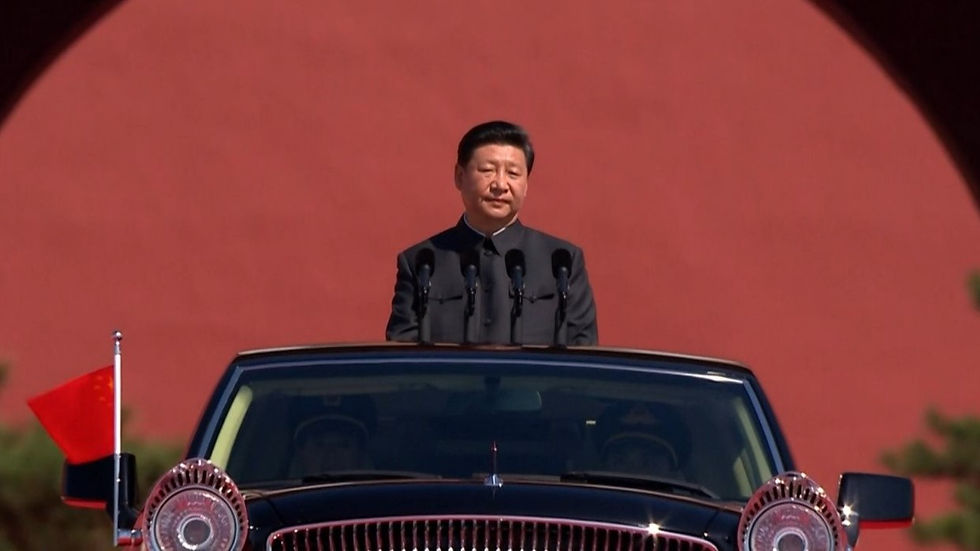A Good Pandemic for Xi
- Joseph Moore
- Feb 2, 2021
- 3 min read

It’s early December 2019.
The UK is heading into a major General Election that will determine the outcome of Brexit, whilst in France almost a million people are protesting on the streets against pension reform, and climate activist Greta Thunberg has just been named Time magazine’s Person of the Year for her work on climate change. Almost 6,000 miles away – oblivious to the world – a 55 year old man is coughing. Little do we realise that this cough will be heard around the world, with the course of history about to change…
As we look back on the last year, the destructive havoc that COVID-19 has wrought globally is clear for all to see. Over 2 million coronavirus associated deaths, hundreds of millions of job losses (with the potential to rise to over a billion), the role back of civil liberties, the biggest economic depression in almost 100 years and global development going back by at least a decade if not more – with millions pushed into poverty.
Yet, for the leader of the nation where it all began – President Xi Jinping of the People’s Republic of China – this pandemic has created an opportunity in emboldening the largest country in the world to strengthen its hand, consolidate power and become increasingly assertive on the international stage, with many nations falling deeper into supply chains of reliance as an economic empire is crafted. Undoubtedly, this has been slowly building for years through the Belt and Road initiative and the retreat of coherent US foreign policy – yet the pandemic provided just the ticket to speed this up in a way that has come to be seen as inevitable. In the spring, as much of the rest of the planet was locked down and desperate for goods such as PPE, desk chairs and TV’s – the factory of the world kicked to life with demand for mass production and exportation. China ended the year with its largest trade surplus in recorded history and as the only major economy to record economic growth for 2020.
Xi has often been praised for his nations handling of the pandemic but this betrays both a highly selective memory and an overlooking of the means by which it has used to get to this point. Firstly, it must not be forgotten that China is widely suspected to have underreported its cases and tried to cover up the virus in those crucial early days – dismissing the alarms that were raised by a number of doctors in Wuhan and not confirming until as late as the 20th January 2020 that it could be passed from human-to-human. This created critical opportunities for it to spread out of control and out of China. Further to this, it would not have been in the interest of China to try to contain the virus within China. Why would a Government that has been known to cover up outbreaks before (see SARS 2002-2004) let itself suffer whilst the rest of us happily get on with life? By permitting its spread through inaction and a suppression of the truth, COVID-19 no longer became an issue that could bring down China – but something that would bring us all down.
Secondly the means. We seem to forget that China is not a free country. It is authoritarian, built on mass censorship, control and a lack of genuine accountability to its people – just ask the citizens of Hong Kong – who’s problems the world has largely moved on from since the onset of COVID, or the 1million Uighur Muslims who have been locked up in recent years. It is through control that President Xi has been able to successfully deal with COVID-19 and take advantage of the liberality of others. In the UK ‘lockdown’ has meant potential fines if you are found to have left your area, in China lockdown meant roadblocks and the deployment of troops in selected areas. Dissidence is not tolerated in China – so is it any surprise that country’s that value individual freedom have had a far harder time dealing with this virus? With its whole state apparatus built around a heavily centralised order and control of its citizenry, China has undoubtedly been well placed to deal with the virus and rapidly emerge from the pandemic into a world that has become even more desperately reliant upon it.
To adapt a phrase recently seen in The Economist, this will be the Generation of Xi.








Comments